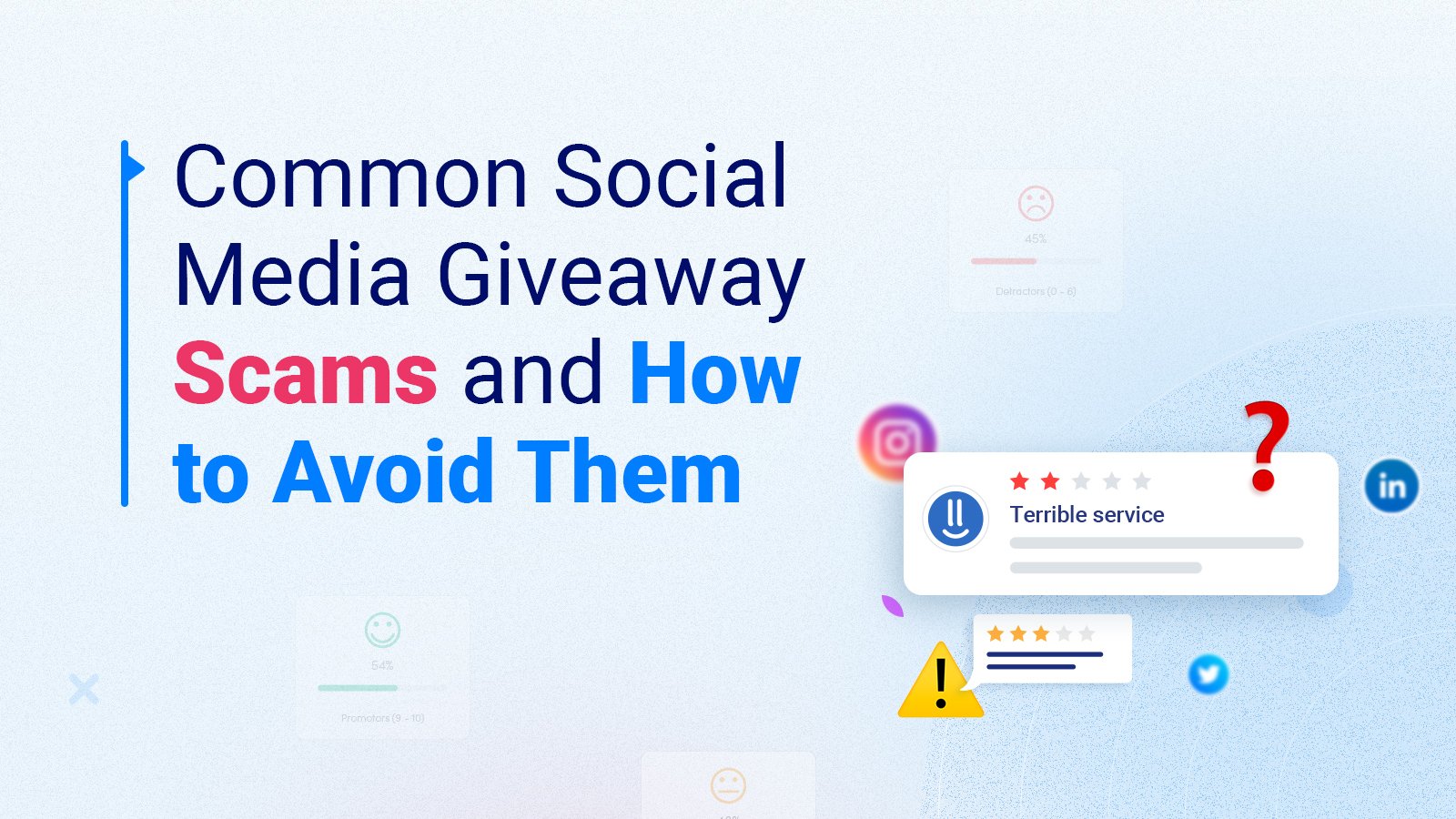There’s been a notable increase in social media scams in South Africa lately. Do you find yourself daily scrolling through your social media feed? You’re not alone. The number of active social media users in South Africa has nearly tripled over the past eight years. Unfortunately, among these are online fraudsters.
With more social media scams happening now than ever before, we’ve put together a list of common ones you should look out for with tips on how to avoid them.
1. Competition and Quiz Scams
Social media competitions or quizzes can be a lot of fun, but sometimes they’re created by scammers who want to steal what’s yours. Therefore, you should always be wary if the competition requires you to click a link or give your banking details.
When you click on a scam or phishing link, it takes you to a form asking for your personal information. However, after you’ve completed this form, they’ll have enough information to steal your identity.
Another clear sign of a competition scam is when you’re asked to pay a seemingly insignificant amount to release your prize. Then, once you‘ve paid the money, you never hear about that prize again.
How to Avoid Competition and Quiz Scams
- If a business posted the competition, check their Hellopeter ratings first
- Check that the social media account has a blue verification tick mark
- Never respond to DMs saying you’ve won a prize for a competition you didn’t enter
- Never click on unrecognised, misspelt or shortened links
2. Fake Job Advertisement Scams
With South Africa’s high unemployment rate, desperate job seekers may feel the need to chase any job offer they can find. Knowing this, scammers often post fake job ads on social media designed to get your attention.
These jobs typically sound like an incredible opportunity but require that you give your personal information or banking details when “applying”. Some job scams go as far as offering you the job and then asking you to make a payment to verify your bank account details, after which they disappear.
How to Avoid Fake Job Advertisement Scams
- Check to see if the job ad is by a known and registered business
- Look at what other people say about this business on Hellopeter
- Check that the social media account has a blue verification tick mark
- Never respond to a job ad posted on someone’s personal social media account
- Never click on random links that are not recognised, misspelt or shortened
- If it sounds too good to be true, assume that it is
3. Brand Impersonation Scams
Scammers often create fake social media accounts impersonating established brands to appear trustworthy. Their social media feed and profile may look deceivingly legitimate but will advertise fake competitions or send you direct messages to request information.
Watch out for personal messages that sound urgent or create fear. For instance, a scam account posing as the social media platform you’re on may DM you to say your account is hacked. They want you to click on the link in the message, making you the next victim in their social media phishing attacks.
How to Avoid Brand Impersonation Scams
- Check that the social media account has a blue verification tick mark
- Never click on random links or URLs that are not recognised, misspelt or shortened
4. Hacked Account Scams
One of the most deceiving and traumatic social media scams involves hackers accessing a friend or family member’s account. You will get a message from your loved one’s account to say they’re in trouble and urgently need you to send money.
How to Avoid Hacked Account Scams
- Always check that the message is coming from your friend’s original account and rather speak to them directly to confirm it is in fact them you’re speaking to
- Never click on random links or URLs that are not recognised, misspelt or shortened
5. Unsolicited Link-Sharing Scams
Scams are sometimes hard to kill, especially when you have so many people sharing them on social media. When competitions, advertisements or personal messages require that you reshare or send it to everyone you know (as opposed to only a few people), it’s a clear sign of a social media scam.
How to Avoid Unsolicited Link-Sharing Scams
- Do not open any links with unofficial, misspelt or unknown URLs
- Warn your family and friends when you see signs of a scam on social media
- Do not make personal information on your account publicly available
- Turn off targeted advertising in your social media account settings
6. Online Dating Scams
Has a stranger ever befriended you on social media? While online dating has been hugely successful for some, others haven’t been as lucky.
Many scammers lurk behind fake profiles and elaborate conversations, even those involving video calls. Pretending to be someone they’re not, they’ll say anything they need to lure you into believing you’ve found romance. It may be weeks and even months before they tell you about some financial trouble they’re in, asking for your help.
Other methods used by online dating scammers involve getting you to share private information or photographs with them. They use this to steal your identity, clear your bank account and blackmail you.
How to Avoid Online Dating Scams
- Never send money to anyone you’ve only met online
- Don’t share private information or photographs with anyone online
- Avoid dating someone online who has endless excuses for why you can’t meet in person
Learn to Sidestep Social Media Scams in South Africa
With scamsters on all our favourite social media channels, it’s vital to brush up on common social media scams and learn how to avoid them. However, you won’t only find scams on social media. To protect yourself from scam businesses, always first check that the business is legit and read their reviews on Hellopeter before spending a cent.
